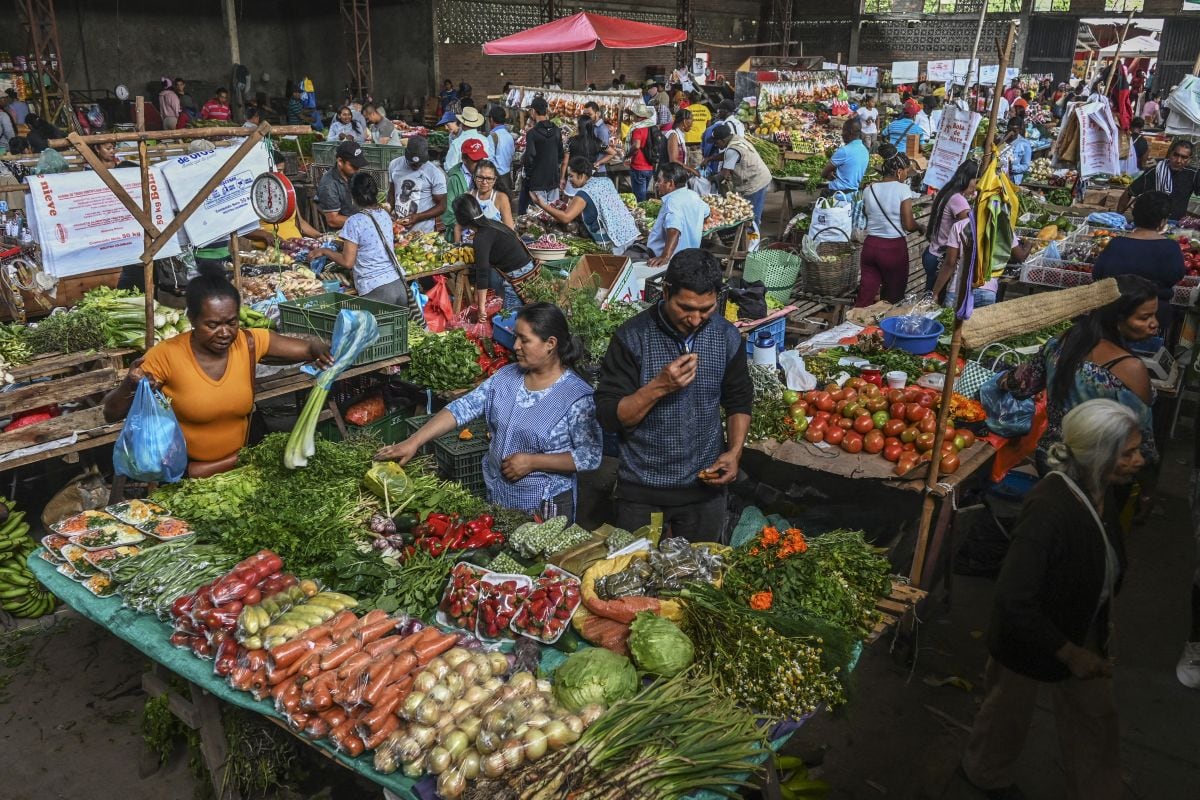
Latin America and the Caribbean “they can and must take a step forward” to face the growing rates of hunger and inequality in the region, which would place them “at the forefront of world food and agriculture,” said the FAO on the occasion of the VII Summit of the Community of Latin American and Caribbean States (celac).
“Multilateral institutions need to innovate” to respond to the current unprecedented and overlapping crises, said the director general of the Food and Agriculture Organization of the United Nations (FAO), Qu Dongyu, in a message to the political leaders of the region.
The celac It is an intergovernmental mechanism for dialogue and political agreement aimed at supporting regional integration programs and is made up of 33 countries in which close to 600 million people live.
READ ALSO: Reactivation of Chinecas depends on the cleanup of 8,000 hectares now invaded
Qu outlined key priority areas that integration through Celac would facilitate, highlighting the need to expand food supplies in the Caribbean, where healthy diets are expensive, as well as investing in water infrastructure and food production initiatives in Central America. , where droughts and emigration are persistent trends.
He also highlighted the importance of improving the exchange of food between the countries of the Andean region and promoting a broad regional program of infrastructure for the production, storage and transport of food to facilitate intra-regional trade and exports, according to a statement from the UN agency. .
While it is natural to prioritize the protection of national economies, it is important to note that “We are all together on this small planet and the measures taken in one country affect all the others”Qu said, citing the COVID-19 pandemic as an example of the value and importance of international collaboration.
FAO can effectively support the implementation of CELAC’s initiatives and the objectives of all Members if their concerns are made clear and tangible and sustainable solutions are agreed, he said.
He recalled that Latin America and the Caribbean was a region that obtained the best results in terms of reducing hunger and poverty in the decade up to 2015, although, despite being the largest net food exporting region in the world, it has recently suffered significant setbacks. : Between 2019 and 2021, the number of people suffering from hunger increased by 30%, reaching 56.5 million.
LOOK HERE: Remote work in times of social upheaval: can you negotiate with your employer?
This could represent a setback of a decade or more in the effort to reduce poverty and hunger in the region and beyond, and hamper efforts to reduce inequalities, as called for in the Sustainable Development Goals, according to the FAO Director General.
Although the FAO Food Price Index has declined, offering some respite, the recovery has yet to set in and more challenges are inevitable as the world’s agri-food systems operate under risks and uncertainties, including those stemming from the climate crisis and the economic slowdown, Qu added.
And he called for urgent collective action now to focus on the social and economic consequences of the pandemic, rising food insecurity, rising prices for staple foods, fertilizers and other farm inputs, the climate crisis, erosion of biodiversity, deforestation and water scarcity.
As well as regarding persistent poverty and the increase in inequalities that are especially affecting rural populations, women, youth and the most vulnerable.
“All FAO teams in the region are prepared and fully committed to providing all the Organization’s technical expertise and capacity to governments to help them meet the current challenge of food security”he claimed.
Source: EFE
Source: Gestion
Ricardo is a renowned author and journalist, known for his exceptional writing on top-news stories. He currently works as a writer at the 247 News Agency, where he is known for his ability to deliver breaking news and insightful analysis on the most pressing issues of the day.












